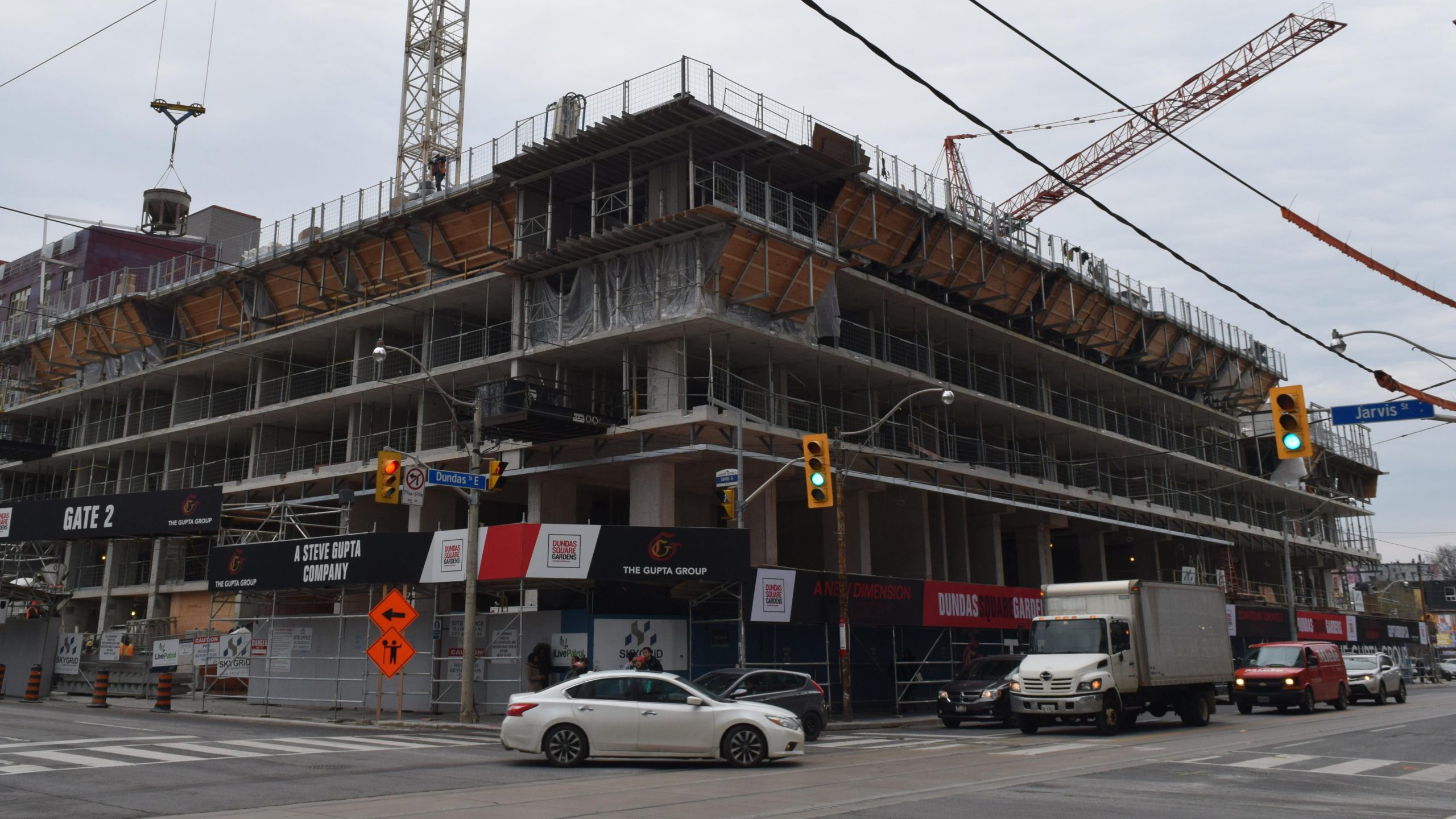By Kiernan Green
A location for Toronto’s first Indigenous district has been decided, with Ryerson acting as a “long-term” community supporter, according to Ward 27 councillor Kristyn Wong-Tam.
In January, The Eyeopener reported that the city planned to establish an Indigenous business district at Jarvis and Dundas streets to provide the services needed to allow Indigenous businesses to grow. The district’s name and cost were as of then undecided.
Councillor Wong-Tam launched the idea and is working with her team and other Indigenous business community members to bring it to fruition.
Meetings are currently being planned for the near future and new stakeholder information will be provided to aboriginal interest groups affected by the project.
Wong-Tam said that the centre for the planned Indigenous business district —currently called the Indigenous Centre for Social Innovation (CSI), as a placeholder name—will be located on the first two floors of a 42-story condo tower at the intersection of Jarvis and Dundas streets currently being built.
The district’s name will remain undecided by the city, allowing the Indigenous community of the area to name the area themselves.
Wong-Tam estimates that the price of the real estate secured by city for the CSI is around $13 million, and that another $13 million will be required to fixture and brand the space with “Indigenous informed art” and a multi-performance stage. Talks with Toronto’s Economic Development and Culture Division are ongoing to decide upon the operating dollars required for the development, said Wong-Tam.
The centre will act as an incubator to help Indigenous businesses develop. Membership to the district will be available to the public for a fee, which will allow for exclusive sales and rent of the performance stage.
“We want to be able to make sure that there is at least one destination—a very clearly marked and branded destination—that is a dynamic Indigenous business and cultural district. We hope that it will be a prominent and premier destination,” said Wong-Tam.
She added that the district’s sphere of influence along Dundas street could stretch as far east as the Don Valley river, and as far west as Beverly and St. Georges streets.
Jean Paul (JP) Gladu, president of the Canadian Council for Aboriginal Business, said the district will help to recognize the input of Indigenous business in the Canadian economy.
Last year, Indigenous peoples contributed over $30 billion to Canada’s GDP, with around $12 billion of that figure coming from Indigenous businesses, he said.
“It’s important that we can get together and celebrate our success and share that with other Canadians. Business is such a good way of doing that because we can build our economy,” said Gladu via email. “Momentum behind this project is growing. It’s going to take a multitude of players to make this a reality.”
Ryerson University has been one of these players and a “long-term community supporter” said Coun. Wong-Tam. In making reference to the DMZ and fashion incubators such as the Fashion Zone and the Joe Fresh Centre for Fashion Innovation, she said Ryerson has been a point of reference for “expertise in incubator start-ups.”
Ryerson is involved in discussions with city hall but has not confirmed its direct involvement with the district, according to the university’s office of public affairs over email.
In an attempt to build a strong Indigenous community surrounded by supportive partners, Wong-Tam said that she considers Ryerson both an Indigenous and institutional partner because of the university’s Indigenous community and the influence of the university in Toronto’s downtown core.
The University of Toronto’s ONRamp space, the MaRS Discovery District on College Street, and the Polsky Center for Entrepreneurship and Innovation in Chicago have also been points of reference for the Indigenous business district’s development.
Wong-Tam said that the next step for her and her team is presenting their plans for the district to the Toronto Aboriginal Support Services Council by the end of November.
She said since January, her office has been in conversation with aboriginal interest groups such as the Indigenous Place Making Council, the Native Canadian Centre of Toronto, the Canadian Council for Aboriginal Business, the Metis Nations of the Toronto/York Region Council, the Mississauga New Credit First Nation, the Six Nations of the Grand River, and the Native Women’s Resource Centre of Toronto – the latter of which she said was one of the “biggest champions” in the districts development.
By January 2018, she said she plans to have figured out a budget for the district with Toronto’s Economic Development and Culture Division and to present the plans of the district to Toronto’s Aboriginal Affairs Committee.










Leave a Reply